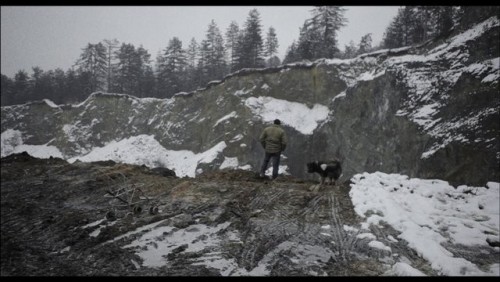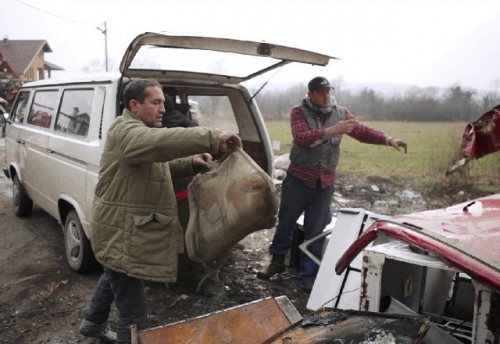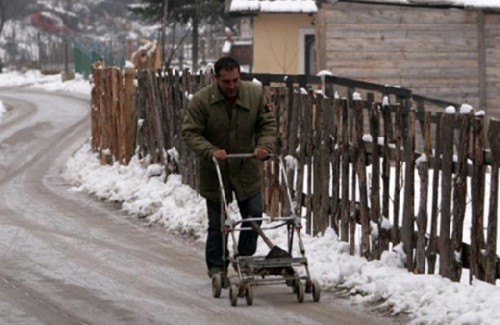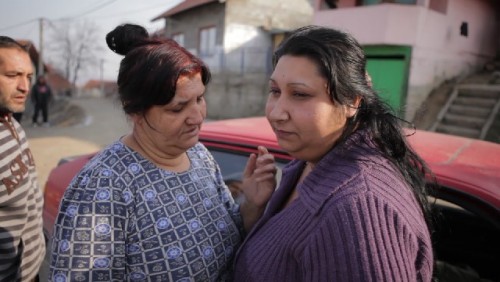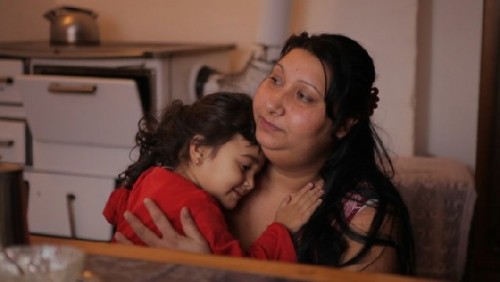Documentary of Gypsies or The Travelers
An Episode in the Life of an Iron Picker
By: Jack Lyons - Jan 12, 2014
The title of this film documentary may be a little long and/or obscure for a theatre marquee – “An Episode in the Life of an Iron Picker” – but its story and style (hand held camera) presents a window to the world where countries and their people still struggle to survive at the low end of the economic and social ladder, resonates with societies everywhere not just here in the United States.
Gypsies or Roma people from Europe have been discriminated against for centuries. Powerful stories of the disenfranchised are few and far between in mainstream cinema, because there is very little monetary gain to be had in telling their stories. But that hasn’t deterred Danis Tanovic, one of Europe’s finest documentary filmmakers from bringing a heart-breaking story to the screen. The total budget for film is reputed to be about $50,000, but looks more expensive up on the screen.
Tanovic has produced a compelling film mainly using non-actors to tell the story of one Bosnian Roma family. The narrative text appears be non-scripted for the most part, although director Tanovic is listed as the screenwriter. The Mujic family, husband Nazif, wife Senada, and young daughters Semsa and Sandra who look to be about 5 and 6 years of age, live in a Roma shantytown in the Tuzla region of Bosnia/Herzegovina.
Although a veteran of the War, he served four years fighting for Bosnia/Herzegovina, Nazif has no pension, no insurance, no child benefits, or prospects of working within the government system. As a Roma he is forced to eke out a meager living for his family collecting scrap metal from dumps and junk heaps. In the States, he would be called a poverty junkman, a step away from homelessness for himself and his family.
Senada, now pregnant with her third child, develops a serious medical complication with the fetus, which the local doctors have declared as dead. She has been bleeding for a week and needs immediate medical attention. Nazif drives Senada and the children, in a borrowed car, to an urban hospital, miles away in the hope that she will receive medical help. Without an insurance card, however, no hospital will care for her, emergency situation or not.
Nazif is frustrated at every turn. His brother and his neighbors help him in whatever way they can, but the disenfranchised and the powerless have little chance succeeding. Finally, Senada’s sister-in-law gives her own insurance card, and the journeys to the hospital begin again. The procedure is finally performed and Senada comes home to recuperate. However, the after-surgery medication is more expensive than the initial procedure… but the beat goes on.
The plight of the Mujic family is unrelenting in its hopelessness. I was struck by resignation of the family who accept setback after setback, yet keep plodding forward.
The next time I’m tempted to complain about slow service in a restaurant, I think, I’ll just tough it out.
Reposted courtesy of Jack Lyons and Desert Local News.


